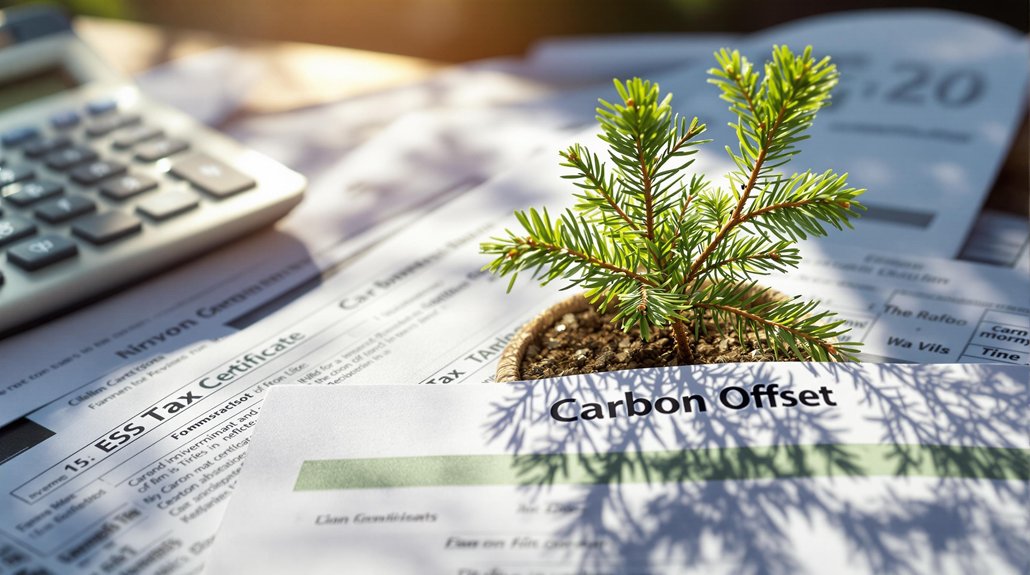Tax deductions for carbon offsets are a mixed bag. Most individuals can’t deduct them at all unless they’re donating to qualified charities and itemizing deductions – which only 13% of Americans do. Businesses have it better, potentially claiming offsets as ordinary business expenses under Section 162. International rules vary wildly, from the UK’s VAT-free approach to Australia’s deferred deductions. The deeper story reveals a complex web of evolving regulations and restrictions.

While companies and individuals rush to offset their carbon footprints, the tax implications remain murky at best. The United States has no explicit IRS rules governing carbon offset tax treatment, leaving many scratching their heads.
For individuals, it’s pretty straightforward – and not in a good way. Regular folks can’t deduct carbon offset purchases unless they’re donations to 501(c)(3) nonprofits, and even then, they’ll need to itemize. Good luck with that, since only about 13% of Americans actually itemized deductions in 2019.
Want to deduct your carbon offset purchases? Unless you’re among the 13% who itemize, don’t hold your breath.
Businesses have it a bit better, though that’s not saying much. Companies might be able to deduct carbon offset purchases as ordinary business expenses under Section 162, or they might need to capitalize them under Section 263. It’s a classic “it depends” situation that accountants love so much. Purchasing offsets has become a necessary business expense for companies committed to sustainability. Tourism contributes to about 8% of emissions globally, making carbon offsets particularly relevant for travel-related businesses.
And there’s a cap – businesses can only deduct charitable contributions up to 10% of their taxable income. Not exactly generous.
The international picture isn’t much clearer. The United Kingdom won’t charge VAT on carbon credit purchases, and they’re potentially deductible if they’re “wholly and exclusively” for business. How’s that for crystal clear?
Australia actually has its act together with Australian Carbon Credit Units, but deductions are deferred until the credits are sold or surrendered. Canada’s still figuring things out with their 2030 Emissions Reduction Plan and their shiny new Greenhouse Gas Offset Credit System launched in 2022.
The bottom line is that carbon offset tax treatment is about as settled as a caffeinated squirrel. Documentation is vital – the tax authorities aren’t taking anyone’s word for it.
Different countries have different rules, different interpretations, and different levels of clarity. Some jurisdictions haven’t even decided how to handle these transactions yet.
And while the tax implications might be confusing, they’re becoming increasingly important as more organizations jump on the carbon offset bandwagon. The rules are evolving faster than climate change itself – and that’s saying something.








